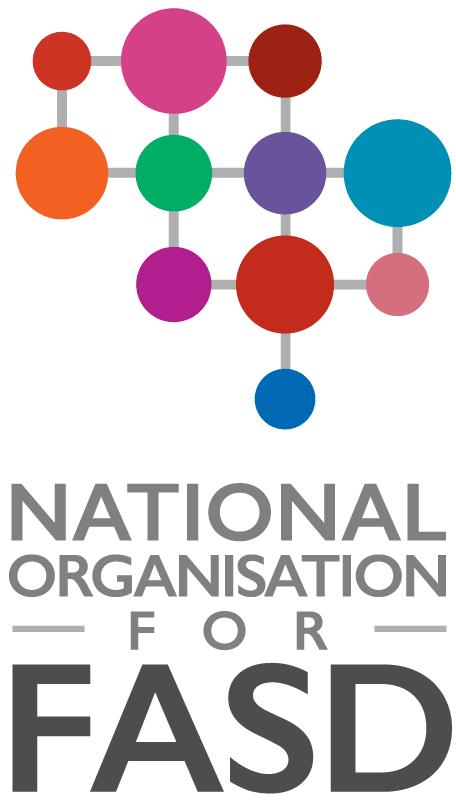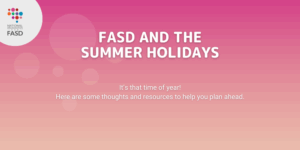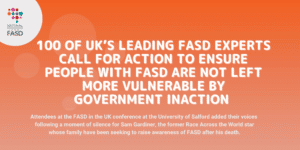Sex and Alcohol: Young Adults are Taking Risks without Knowing the Consequences
For more information: Joanna.Buckard@nationalfasd.org.uk
In February 2021 the National Organisation for FASD teamed up with OnePoll and 72Point to learn more about young people’s understanding of the risk of sex, alcohol and pregnancy. OnePoll polled 1200 16-25 year olds across the UK.
The results show that young people dangerously mix sex and alcohol without understanding the consequences.
Sex and alcohol intertwine for young people, according to a new poll that also highlights half of them are embarrassed to talk about these issues. They are most comfortable talking to friends about these issues, but they don’t have access to solid information about these topics.
While 32% said they were taught in school about how to get pregnant and the act of having sex, 85% did not learn about the risks of alcohol in pregnancy and 84% did not learn about binge drinking.
Only 45% feel they know how to prepare for a healthy pregnancy when they are ready to have a family.
Since the start of the pandemic 18% of 16-17 year olds say it’s harder to access contraception and 10% of 16-17 year olds say they or their partner have become pregnant.
Sandra Butcher, Chief Executive for The National Organisation for FASD, said, “It’s important to talk about the intersect of sex, alcohol and unplanned pregnancies, especially during the pandemic. This poll and our earlier research shows young people regularly flirt with this line of booze and sex without having all the facts. These poll results should concern us all and inspire us to start talking openly about sex and alcohol and everything that comes with it.”
The 18-25 year olds report risky behaviour such as having sex during a night of drinking alcohol (41%), forgetting to take or wear contraception during sex that could lead to pregnancy due to having had alcohol (18%), having sex and not remembering the next day if they used contraception due to drinking alcohol (13%). This behaviour is regular – a high rate (39%) of 18-25 year old females report binge drinking at least monthly – with 9% binge drinking weekly (9% female), 7% 2-3 times a week and 1% daily. (Due to their age, the poll didn’t ask 16-17 year olds these questions.)
Joanna Buckard, further education lecturer and National FASD staff member said, ‘COVID has had an impact too. 85% of 16-17 year olds were not told about the risks of alcohol in pregnancy by a teacher and during covid 18% have said getting contraception has been more difficult. 10% of this age group said they became pregnant since the start of COVID and a third were still not told by healthcare professionals about the risks of alcohol in pregnancy. This is a scandle that young people are being put in this position!’
While the UK Chief Medical Officers advise, “If you are pregnant or think you could become pregnant, the safest approach is not to drink alcohol at all, to keep risks to your baby to a minimum,” 25% of 16-25 year olds say they know people who have continued to have occasional drinks during pregnancy. Young people are still getting mixed messages about alcohol in pregnancy. While 30 percent didn’t know the CMO advice is to avoid alcohol in pregnancy, 47% think it’s ok to continue to have wine occasionally while pregnant and 42% think it’s ok to have beer.
Joanna Buckard, Specialist Projects Coordinator for National FASD, said, “They are not realising that any type of alcohol poses a risk and that there is no proven safe amount of alcohol in pregnancy. Drinking in pregnancy risks miscarriage, premature birth, SIDS as well as Fetal Alcohol Spectrum Disorder (FASD).” Buckard said, “There is a new NICE Quality Standard on FASD coming in 2021, but it starts the discussion at the first pregnancy appointment. This poll shows the importance of starting these discussions sooner, so people know how to stay safe, avoid risky unplanned pregnancies and to plan for healthy pregnancies when the time comes.”
“Alcohol and pregnancy are a dangerous mix,” said Sandra Butcher, Chief Executive of the National Organisation for FASD. “We are somehow expecting young people to know why without doing the work needed to ensure they are getting solid information into PSHE classes and without public health campaigns. They have no idea they are playing with the future of the next generation. We have to get past our hang-ups and normalise these discussions.”
The survey showed that while 49% of 15-25 year olds are happy to talk about hangovers only 18% are comfortable talking about: how to get pregnant, 33% about contraception, 31% about binge drinking and 22% about alcohol in pregnancy. 25% said ‘we don’t talk about sex, drugs and alcohol in our family’. 33% said they themselves are not comfortable talking about sex.
Contraception was the only area where young adults were more at ease talking to their doctors (60% 18-21 year olds, 59% 22-25) versus their friends (47% 18-21; 52% 22-25) or mums (28% 18-21; 39% 22-25).
Butcher says, “Young people should be given information about the CMO guidance during contraception discussions with their GP or other medical professionals. What are we waiting for?”
Only 35% of 16-25 year olds realised that all people with Fetal Alcohol Spectrum Disorder(s?) have brain damage due to exposure to alcohol in utero.
[This blog post also appeared on our sister site here.]
It’s important to talk about the intersect of sex, alcohol and unplanned pregnancies...We have to open up these discussions. FASD is preventable. Expanding the accessibility of knowledge around the consequences of alcohol in pregnancy can really help in preventing FASD for many babies in the future and in promoting knowledge about healthy pregnancies. The question we are actively exploring is, how do we reach young people if they’re embarrassed to talk about these issues and prefer to get information from friends who themselves have not got access to solid information?
Sandra Butcher, National FASD




